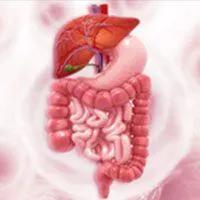
Dr. Pishvaian on the Implications of the RATIONALE-306 Trial in ESCC

Michael Jon Pishvaian, MD, PhD, discusses the clinical implications of the phase 3 RATIONALE 306 trial and the adverse effects associated with immunotherapy in patients with advanced esophageal squamous cell carcinoma.
Michael Jon Pishvaian, MD, PhD, director, Gastrointestinal, Developmental Therapeutics and Clinical Research Programs, associate professor of Oncology, Johns Hopkins Medicine, discusses the clinical implications of the phase 3 RATIONALE 306 trial (NCT03783442) and the adverse effects (AEs) associated with immunotherapy in patients with advanced esophageal squamous cell carcinoma (ESCC).
The study evaluated chemotherapy plus the anti–PD-1 agent tislelizumab (BGB-A317) vs chemotherapy alone in patients with metastatic or unresectable ESCC. Updated findings from RATIONALE 306 presented at the 2022 ESMO World Congress on Gastrointestinal Cancer showed that the combination elicited a median overall survival of 17.2 months (95% CI, 15.8-20.1) compared with 10.6 months (95% CI, 9.3-12.1) for chemotherapy alone, reducing the risk of death by 34% (HR, 0.66; 95% CI, 0.54-0.80; P < .0001). These were practice-changing results showing the benefit of adding tislelizumab to chemotherapy for the treatment of patients with metastatic ESCC, Pishvaian says.
When telling patients about the toxicities associated with treatment, it is important to note the varying AEs that can occur when receiving immunotherapy, Pishvaian notes. Although patients may be familiar with the AEs associated with chemotherapy, including nausea, vomiting, diarrhea, myelosuppression, and potentially hair loss, immunotherapy can produce a different set of immune-related AEs. Treatment with immunotherapy can lead to fever, chills, myalgia, and arthralgia. Although the rates of these AEs are not high, they can occur, and patients should be informed, Pishvaian says. Moreover, treatment with immunotherapy can also cause patients to develop endocrinopathies, such as hypothyroidism, adrenal insufficiency, type 1 diabetes, and, in rare cases, panhypopituitarism.
Serious AEs that can arise from treatment with immunotherapy include pneumonitis, hepatitis, and autoimmune conditions, Pishvaian explains. When immunotherapy treatments were first introduced, clinicians were still learning to recognize these serious AEs; however, with time and experience using immunotherapy, careful monitoring and quick intervention for any serious AEs that do occur have allowed for these toxicities to become more manageable, Pishvaian concludes.




































